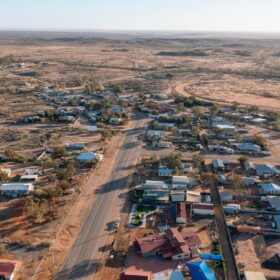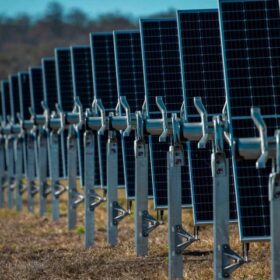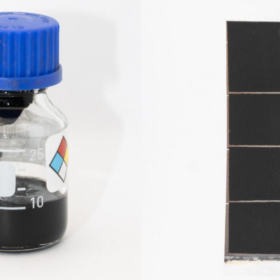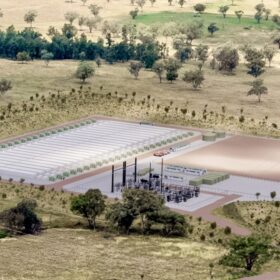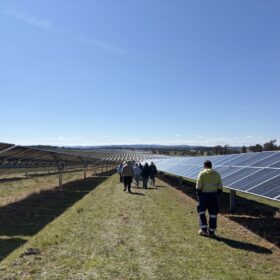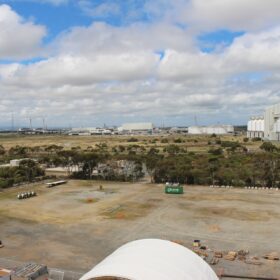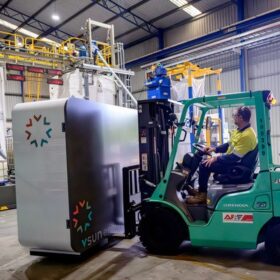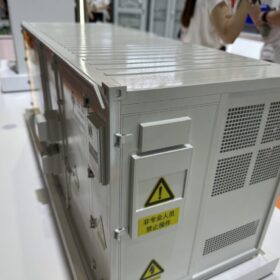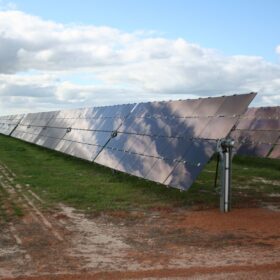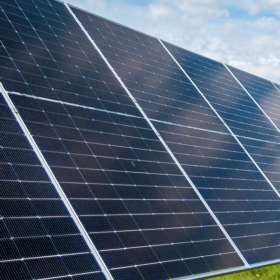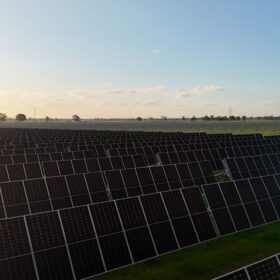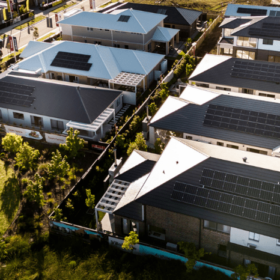Connected and islandable microgrid project launched in New South Wales
A collaborative project focussing on the development of connected and islandable microgrids within the Australian distribution network has been launched in New South Wales.
Tindo’s road ahead paved with funds, challenges and future-proofed growth
pv magazine spoke with Australian solar panel manufacturer Tindo Chief Executive Officer Richard Petterson about the company’s future expansion on the back of Solar Sunshot funding, and how it plans to tackle current market and manufacturing challenges to stay on course for future growth.
New renewable generation capacity in 2025 on track for 7 GW: report
The Clean Energy Regulator’s Q3 2025 quarterly carbon market report has found Australia is on track to add nearly 7 GW of new renewable generation capacity in 2025, with large-scale projects contributing up to 4 GW.
First Graphene and Halocell seal deal on graphene-based carbon paste
Graphene producer First Graphene has secured exclusive global graphene carbon paste production and sales rights with perovskite cell developer and manufacturer Halocell Australia.
Ampyr inks $300 million long term agreement for Bulabul BESS
Ampyr Australia has signed a 15-year agreement for its Bulabul battery energy storage system near Wellington, New South Wales, in the Central West Orana renewable energy zone with Danish energy trading company InCommodoties.
FRV seeks federal tick for NSW solar farm and beefed up battery
A redesigned hybrid solar and battery project now featuring 200 MW of PV generation and a beefed up 2.2 GWh of energy storage capacity planned for far northern New South Wales has joined the queue for federal environmental approval.
Engie breaks ground on South Australian battery
French-owned energy group Engie has commenced construction of a new large-scale battery that is says will deliver more capacity and flexibility to the South Australian electricity grid.
WA plans 10-hour flow battery install to boost power reliability
The Western Australia government is looking to deploy a vanadium flow battery energy storage system with up to 10 hours of discharge capacity to help improve regional power reliability in the state’s Goldfields region.
Sinovoltaics updates financial stability ranking for battery manufacturers
The quality assurance service provider’s latest financial stability ranking has Tesla, Mustang Battery and Solid Power in the top three spots again, in a report that tracks manufacturers’ Altmann-Z scores over the past three years.
Potentia lands federal approval for NSW solar and storage project
Potentia Energy has reached another renewables milestone with its 1 GW Tallawang solar and battery energy storage project proposed for construction in western New South Wales awarded unconditional federal environmental approval.
